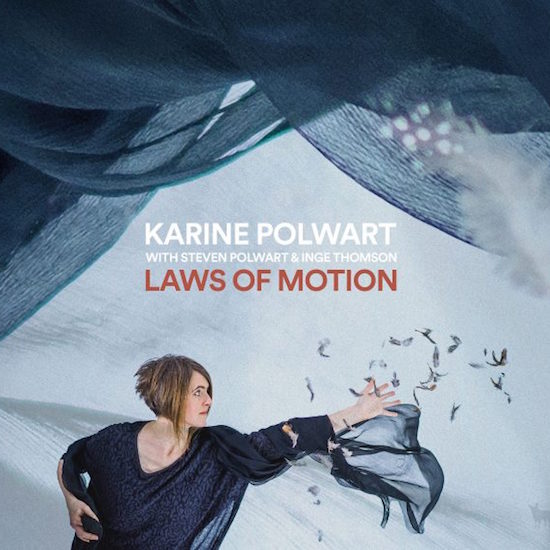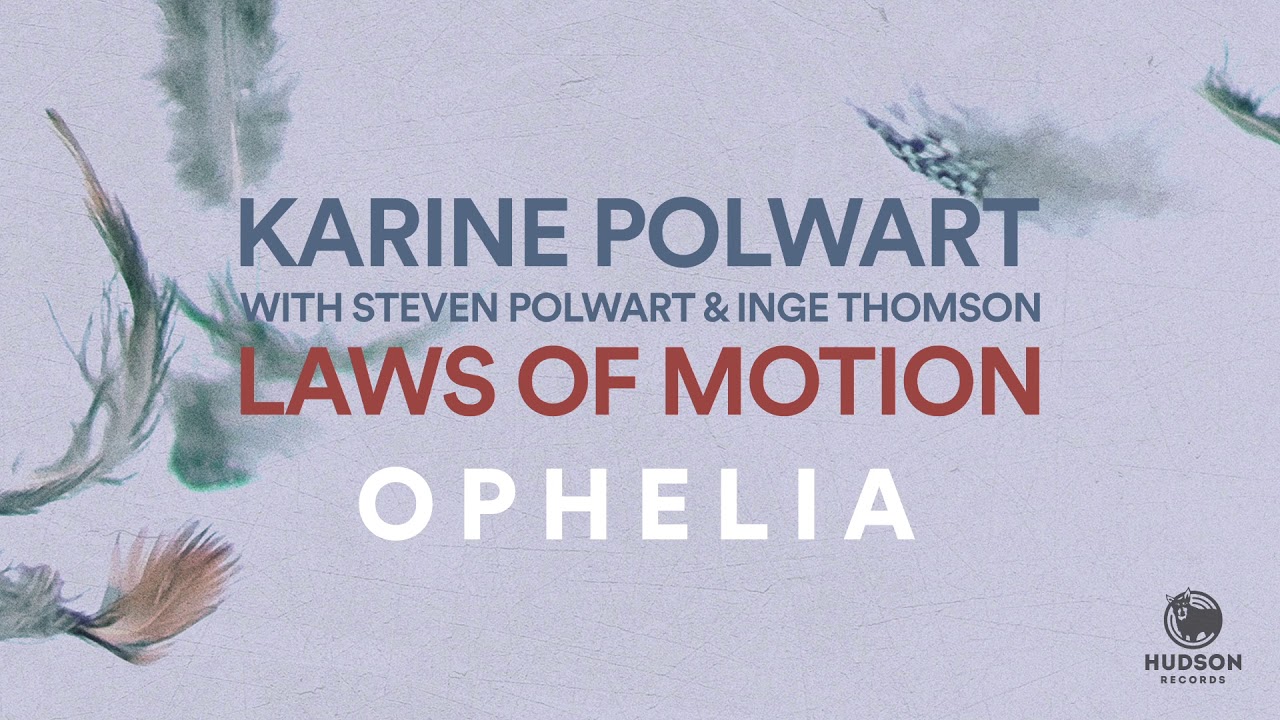It is less than a year since Karine Polwart released A Pocket Of Wind Resistance, a delightful set of songs that sprang from the Midlothian peat and made airy, irresistible connections between migrating geese and healing moss, childbirth and death. That album was a triumph, and Polwart is clearly on a roll. Laws Of Motion picks up where A Pocket Of Wind Resistance left off, with more songs that deploy the power of narrative in the face of mindless politics.
Several of the tracks here were written with Martin Green of Lau, and Polwart is joined by two regular musical partners – her brother Steven on guitar and vocals, and Inge Thomson on accordion and percussion. Together the songs form a set almost despite themselves, returning to the themes of malign leaders, war and destruction. If this sounds a tough listen, it is anything but. Polwart is a genius at weaving idiosyncratic but powerful connections using hidden history and the forgotten past.
On ‘I Burn But I Am Not Consumed’, she tackles Trump through the medium of his Scottish ancestry, quoting his family motto. She calmly examines the story of his mother Mary Anne MacLeod’s emigration from the perspective of the rock beneath Lewis, “two thirds the age of Earth” dismissing her son as “powerful, but so is the north wind”. By way of contrast, ‘Matsuo’s Welcome To Muckhart’ tells the redemptive story of Shinzaburo Matsuo, who left Japan after the loss of his family in the Great Earthquake of 1923, arriving in Clackmannanshire where he tended the famous Japanese garden at Cowden Castle.
Laws Of Motion includes more conventional songs than A Pocketful Of Wind Resistance, in terms of their structure if not their concerns, showing how powerful and direct Polwart’s songwriting can be. ‘Laws of Motion’ itself, which grooves harder than the average folk song, defies physics with “the anchor lines of love and life”; ‘Ophelia’ has simple, yearning guitar and accordion and a lyric in which “Red dust blows across the sun” in the aftermath, possibly, of a nuclear bomb. ‘Suitcase’ is a layered ballad about dislocation and separation in a different time, the Kindertransport, with children “in their satchels and raincoats / heading for home”. There is no need to mention Trump’s separation policy to know exactly why this song matters now.
The other strand in Polwart’s writing is landscape. Scotland is a constant presence, outlasting humans such as Trump, who subdue it for “executive golf”. “Be still, be still and watch the sky / tread lightly as you pass on by and listen,” she sings on ‘Cornerstone’. However, the natural world is entwined with war. The heather dissolves into the olive groves and pheasants of the Apennines on ‘Young Man on a Mountain’, about the second world war experiences her grandfather never discussed. A cover of Sydney Carter’s ‘A Crow On A Cradle’ casts the crow as the harbinger of war, taking the baby for the army as soon as he is born.
The apocalyptic theme returns in the stunning closing track ‘Cassiopeia’. A painful, gorgeous tune sets up the situation: “When the grid went down again again tonight / The only light was stars through the velux windows”, then ‘Protect and Survive’ instructions kick in, and Polwart’s low, rich voice describes the threat of annihilation experienced as a nine year old living with earshot of the nuclear attack sirens at BP’s Grangemouth refinery. It is epic, assured and spine-tingling. Polwart’s inventiveness is unfettered on Laws Of Motion, but the result is not only musically and instrumentally rich, but uncommonly focused. Music for our times.



